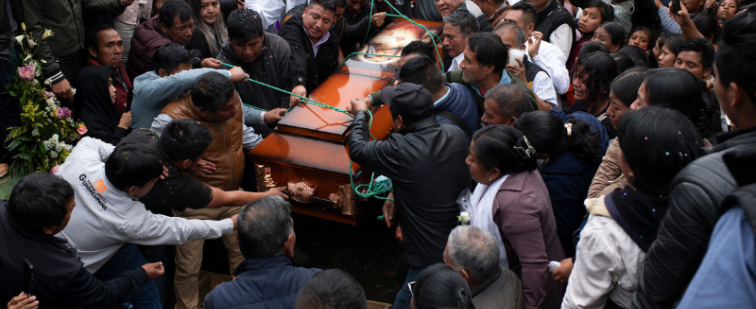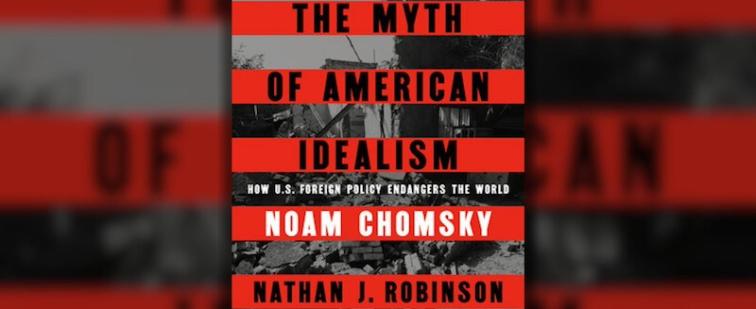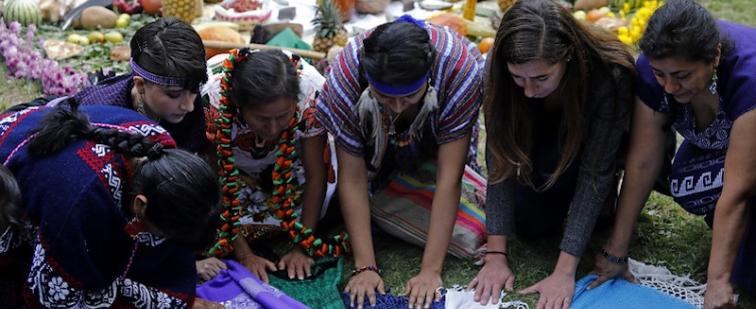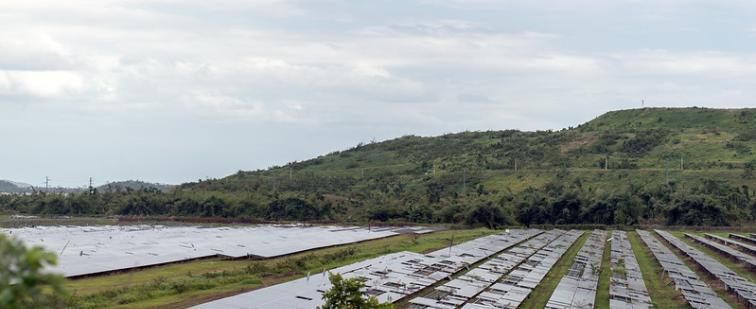Home
Breaking down the fences of the large estates was not as difficult as fighting the technological packages of the transnationals,” Huli recounts as he sits in his kitchen and pours hot water into the mate we share while his son romps around the house. He says the campesinos of Brazil's Landless Rural Workers' Movement (MST, for the Portuguese initials) dreamed for years of reclaiming their land, believing that it would solve all their problems: food for their children, a dignified life of hard work on the farm, education, health, and housing. However, the reality would prove much more difficult, for surprises they had never imagined lay ahead.
General Alfredo Stroessner, Paraguay’s long-time dictator, died on August 16 at the age of 93 after almost two decades of exile in Brazil. His thirty-year reign was so repressive that even the selectively principled Reagan administration decided to distance itself from his authoritarian rule.
At 13,000 feet, the hip hop movement in El Alto, Bolivia is probably the highest in the world. The music blends ancient Andean folk styles and new hip hop beats with lyrics about revolution and social change.
On August 5th, 2006, a large group of men and women from the town of Telixlahuaca assembled in front of the state-owned radio and television station Corporación Oaxaqueña de Radio y Television (CORTV) on the western edge of Oaxaca City, to read a petition and declare themselves to be in solidarity with the Asamblea Popular del Pueblo de Oaxaca (APPO).
On September 2, President Bharrat Jagdeo of Guyana’s People’s Progressive Party/Civic (PPP), was sworn in to a second five-year term in office. Given the level of violence that marked Jagdeo’s last five years as president, August 28’s relatively incident-free election was a major success for a country in drastic need of a societal transformation, let alone political change.
In February 2004, U.S. Marines whisked away then-President Jean-Bertrand Aristide from Haiti amid an armed rebellion led by disgruntled former soldiers and paramilitary actors. Despite the presence of a United Nations peacekeeping force, violence and poverty increased under the U.S.-backed interim government led by Interim Prime Minister Gérard Latortue, which courted the elite and its international backers while alienating Haiti’s overwhelming poor majority. The crisis hit a low point last December and January, with daily shootings in the poor neighborhood of Cité Soleil and an outbreak of kidnappings.
Thousands of teachers and citizens marched silently through the streets of the city of Oaxaca, Mexico on August 13, mourning the recent death of a protester during a peaceful demonstration and demanding the release of six people who were recently detained or disappeared by state authorities. Schoolteacher Elia Silva, wife of disappeared teacher and former union leader Erangelio Mendoza, told the crowd that the illegal detention of her husband and others “will not intimidate the struggle.”
Pages
- « first
- ‹ previous
- …
- 324
- 325
- 326











